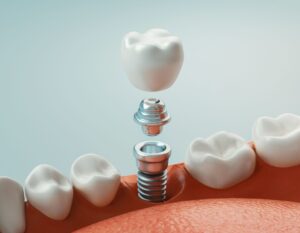Most children visit the dentist once every six months. But many of us stopped making regular visits as we grew older. It is typically because of a strenuous lifestyle, a hectic work schedule, or social obligations. Dentist visits should be scheduled at least once every year, according to experts in oral health, or you risk regretting it later.
How Can the Dentists Help You?
Going to the dentist frequently is the greatest method to keep your gums and teeth healthy. Your dentist might use X-rays to determine the “risk profile” in addition to spotting any portent complications and offering therapy at an early stage.
Using X-rays, the dentist can identify problem areas and provide specialized guidance on how frequently you should visit the dentist and how to start taking care of your teeth.
Your teeth may have minor problems that go undiscovered even though they appear to be in good shape on the outside. To make sure it does not turn into a big problem, you need to visit your dentist as soon as possible. The symptoms that need to be acknowledged are given below –
1. Gum Problems
Gum issues can be in a variety of forms. Have your gums begun to bleed recently? Or perhaps your gums are swollen or blazing red! Such issues can, in fact, occur for several reasons. If you wash your teeth too forcefully, you could damage your gums. Food that becomes trapped in your teeth might also result in a situation like this.
Gums that are swollen, painful, or inflamed frequently might indicate a dental issue. These symptoms could specify dental problems, including gum disease, bone loss, and abscesses. These oral issues demand an immediate and efficient fix. If not, things will only grow worse. Whatever the nature of your issue, don’t ignore dental problems; in fact, be sure to seek urgent care for tooth pain if it lasts more than two days.
A dentist will carefully examine your gums and suggest the most appropriate way to treat your specific gum issues. Additionally, you will receive advice on how to maintain the condition of your gums. Gum disease comes in both moderate and severe varieties.
Mild gum disease can be fairly simple to cure. Maintaining good dental hygiene and seeing your dentist regularly is essential when treating minor forms of gum disease. The treatment of serious gum disease, also known as periodontitis can be more challenging. Such a condition may require a certain kind of dental care. Deep cleaning, as well as scaling visits, are part of the treatment. It may take a longer time.
2. Persistent Headaches
Even though it’s uncommon for people to link headaches to dental issues, recurrent headaches, especially those that wake you up in the morning, may be caused by teeth grinding. If so, your dentist will be able to provide you with a gum shield to help with headache relief and stop additional tooth damage.
3. White Spots on Teeth
A white spot on the tooth can be an indication of impending dental decay. Your dentist can treat it if you visit them before it develops into a heavy cavity. If you notice some white spots around the gum line, an infection is likely to be the cause.
Although infections close to the tooth root might not be painful right away, they can result in an abscess or a loose tooth. If you notice any white patches on your teeth or gums, make sure to visit the dentist.
The health of teeth can be greatly influenced by saliva. The mouth is kept healthy and lubricated by saliva. Food scraps can be rinsed out of your mouth as well as acids may get neutralized if there is enough saliva present.
People taking antibiotics often tend to have dry mouths. However, dry mouth can seriously harm your oral health. A dental expert will advise you on a procedure that will help you maintain the health of your teeth and restore moisture.
4. Extreme Tooth Sensitivity
It is another unpleasant dental issue, which people frequently endure in silence. You should seek therapy for sensitivity not just to ease the discomfort, but also to determine the actual source of your teeth’s irritation.
Sensitivity can result from several issues, including tooth decay, gum recession, and other oral issues, such as teeth grinding or clenching. Make an appointment with your dentist, who may prescribe specific toothpaste to aid with the symptoms in addition to taking care of the root issue.
5. Bad Breath
Another reason for visiting a dentist is bad breath. Sometimes nutritional issues and acid reflux lead to foul breath, which necessitates dietary modifications. You should seek the advice of a gastroenterologist in this situation.
It’s also crucial to remember that gum disease might result in poor breath. If you discover yourself in this circumstance, you require efficient dental care. If you have terrible breath, go to a dentist’s office right away. If gum disease is the source of your foul breath, the dentist will help identify it and subsequently give you the necessary treatment.
6. Sore Mouth
Although mouth sores are frequent, it is best to see the dentist as soon as possible if one persists for a lengthy period. Although oral cancer is uncommon, your dentist should conduct a cancer screening when you develop sores that persist for more than a week.
Your regular dentist can take a biopsy to identify the specific type of sore. If a bump, lump, or mouth sore persists for longer than two weeks, it is recommended to have it examined. As with any cancer, your chances of getting treated are better the sooner you find it.
7. Toothache
A toothache may occur due to various dental issues. Dental issues like abscesses, broken teeth, damaged fillings, and others can be quite painful. Of course, if you have a severe toothache, you need to see a dental professional right away.
Do not put off seeing a dentist. Before addressing your dental issues, your dentist will first identify the sources of your tooth pain. It will help you know what caused you the pain and how you may get rid of it.
8. Difficulty Chewing and Swallowing
People of every age can have issues chewing or swallowing, although older people are more likely to experience these problems. These issues may begin as a result of natural aging, drugs, dental issues, or medical procedures, including surgery.
Dysphagia, or difficulties swallowing, may raise the possibility of food or other objects becoming lodged in the central airways and inhaling them (causing aspiration). An obstruction of the airway may endanger life. It is not normal, so you should make sure to only consume liquids or soft meals and visit your dentist or doctor as soon as possible to prevent making the situation worse.
9. Chipped, Loose, or Cracked Teeth
Any tooth that goes loose or has been damaged requires prompt dental care in addition to maintaining your smile. If you have loose teeth, you may have advanced gum disease.
A broken or chipped tooth can become infected very fast, giving you a toothache and increasing the likelihood that you will lose the tooth entirely. Dentists are always equipped to handle such situations and can provide immediate care.
10. Pregnancy
Oral health is affected by pregnancy. Pregnancy causes hormones to alter. So, when you’re pregnant, several difficulties could develop. Dental problems and poor infant weight are directly related. Therefore, it’s crucial to schedule regular dental checkups while you’re pregnant. A dentist will carefully inspect your dental health during your visit.
11. Jaw Issues
Another indication that you need to see a dentist is pain and swelling around the jaw. If you experience popping or clicking sounds whenever you open or close your mouth, you could have TMJ (temporomandibular joint) disorders as a result of an irregular bite that strains your jaw.
TMJ pain might be a significant problem that makes eating an unpleasant task. You can even lose all ability to open and close your mouth due to a full jaw lock. Once your jaw locks up on you, the dentist will treat the symptoms of TMJ problems and even restore it completely.
12. Losing a Filling or Dental Crown
As you likely already know, the primary function of dental crowns and fillings is to safeguard teeth from infections. Dental crowns and fillings both assist in the prevention of many dental issues. Let’s imagine you lost a dental crown or a filling. If this uncomfortable circumstance arises, you must get quick dental assistance. A dental crown or filling must be replaced in this situation.
Tips to Keep Your Dental Health
Early gum disease frequently do not exhibit any warning symptoms. So make sure to take care and attention to your dental at home and get frequent counseling and consultations, even if you have no symptoms:
- At least two times a day, brush your teeth for two minutes every time.
- Use a soft-bristle toothbrush; those that have hard bristles may harm your gums.
- If you want to use a fluoride mouthwash to help avoid decay, discuss with your dentist whether you should.
- To remove debris from the spaces between your teeth and beneath the gum line, floss once each day.
- Clean your dentures regularly if you wear them. Eliminate stains as well as plaque accumulation that could aggravate your gums. Take off your dentures before going to bed to maintain healthy gums.
Final Words
In the end, never hesitate to call the dentist if you notice anything isn’t quite right. Regarding dental health, it is always preferable to be cautious. Make an appointment immediately if you are experiencing any problems above.








